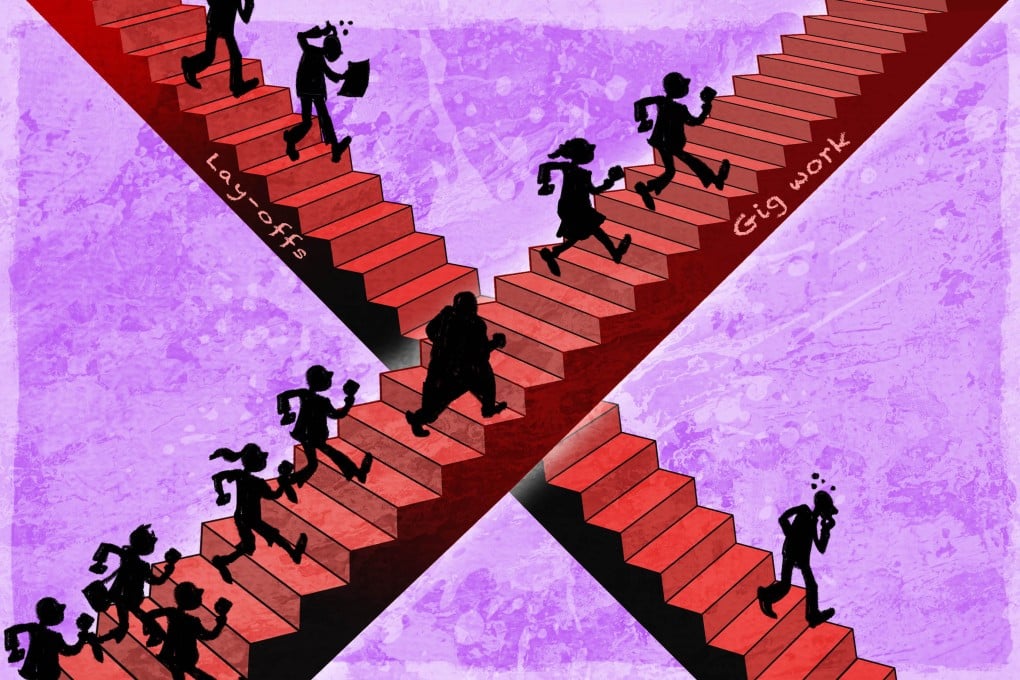Lay-offs by China’s top firms in key industries show unemployment biting through economic turmoil
- A Post review of 23 annual reports from leading Chinese firms found that more than half downsized last year, while others slashed staff-related expenses

Broad lay-offs across major Chinese sectors illustrate how the nation’s economic slowdown is taking a toll on its workforce – with key industry players almost universally reducing headcounts and slashing salaries.
According to a comprehensive Post review of annual reports from 23 Chinese firms –comprising the top five companies by market cap in each of the real estate, internet, automotive and financial industries, as well as three prominent electric-car makers – 14 downsized their workforces in 2023 while others cut staff-related expenses to rein in costs.
“With low profit margins amid a sluggish economy, private companies are understandably adopting workforce reductions,” said Ding Shuang, chief economist for Greater China with Standard Chartered. “State-owned enterprises, on the other hand, may resort to payroll adjustments to save money.”
China’s economic growth, which is widely expected to be around 5 per cent this year, has tapered off in recent years relative to an annual growth rate that had been nearly twice as fast. In a 10-year period from 2002-11, the economy never dipped below 9 per cent growth, and in half of those years it was in the double-digits.
But for years, the property market, once a growth engine, has been grappling with a debt crisis. Internet companies have shifted their focus to profitability amid slowing revenue growth. Automotive and solar panel manufacturers face a brutal pricing war due to domestic overcapacity driven by fierce competition. And financial firms are feeling the pinch, as well.
